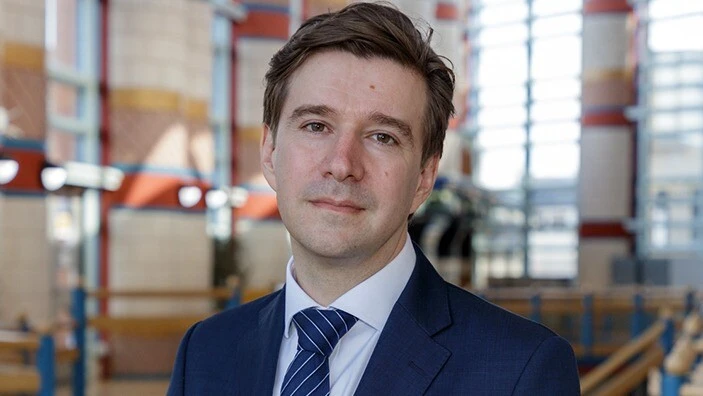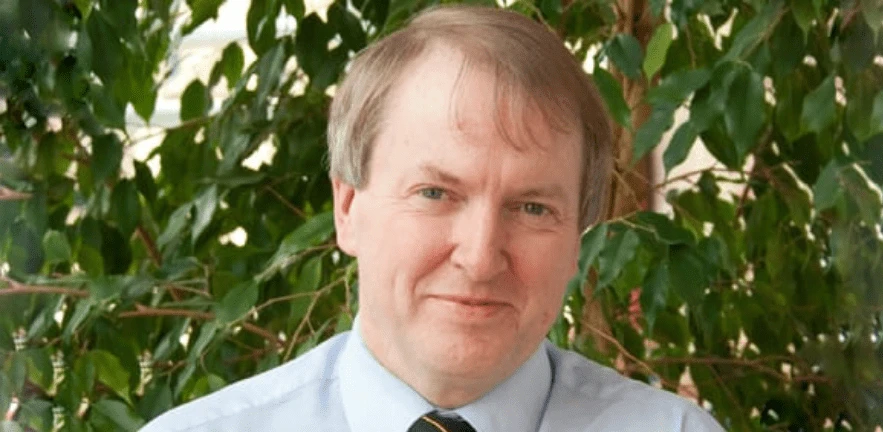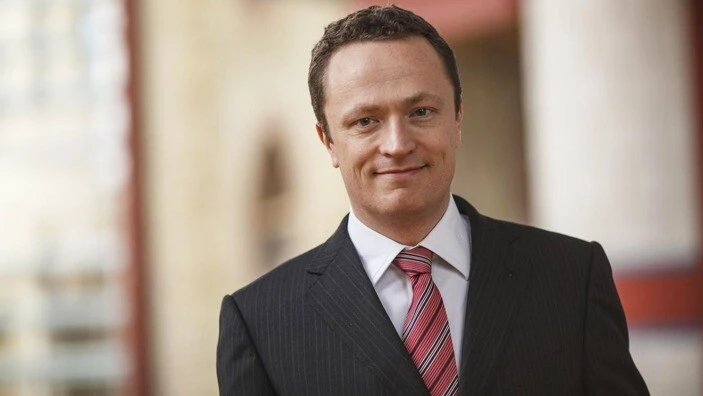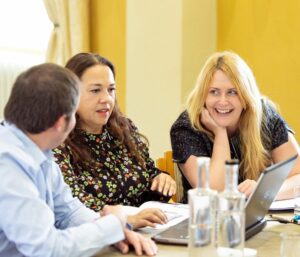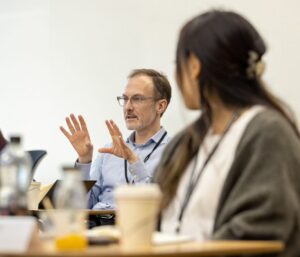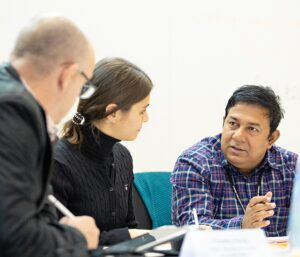Creating High Performance Teams
Explore the realities of creating and leading high-performance teams through turbulent times at Cambridge Judge Business School.
Upcoming programmes
Format:
Dates:
Duration:
Fees:
Face-to-face
2-3 Jul 2026
2 days
£4,000 + VAT
Upcoming programmes
Format:
Face-to-face
Dates:
2-3 Jul 2026
Duration:
2 days
Fees:
£4,000 + VAT
Overview
Explore the realities of creating and leading high-performance teams through turbulent times. Transforming talented individuals into cohesive, high-powered teams within the context of managing an organisation is a complex, multi-faceted issue. Strong teamwork is critical to meeting and surpassing strategic objectives. But the current global business climate has made the landscape in which businesses operate even more challenging.
Creating High Performance Teams at Cambridge Judge offers you new perspectives on building superior team performance in a world where remote and virtual working is now often the norm.
Learn to foster a vibrant team culture that leverages a variety of skills from its members. Understand how to motivate and evaluate your people, and when necessary, be primed to lead from a distance.
Benefits and career impact
- Gain new perspectives on how to achieve superior team performance, particularly within the context of COVID-19.
- Explore the importance of diverse, high-performance cultures.
- Understand how to engage remote teams.
- Develop your individual leadership style.
- Engage with outstanding Cambridge faculty and associates.
- Explore new perspectives immersed in an intimate and global peer group.
- Gain a Cambridge Judge Business School digital certificate of completion.
- Enable your senior people to build and structure optimally effective teams.
- Create teams that can achieve peak performance, both face-to-face and remotely.
- Benefit from newly re-skilled and motivated leaders.
My name is Philip Stiles. I’m a faculty member at Cambridge Judge Business School at the University of Cambridge. My subject area is organisational behaviour, which includes themes such as teams, people, culture, change, performance, and motivation. Like my colleagues, I do three things: I research, I teach, and I advise.
My major research interests are on high performance teamwork, the management of culture, and effective people management. The programme for high performance teams is aimed at all those people who work within teams, either as a member of a team or as a leader of a team. So the programme is for those who have direct leadership responsibility for teams or for those who are looking to improve their own team membership or to build connections between teams in different departments.
The programme for high performance teams is aimed at all those people who work within teams, either as a member of a team or as a leader of a team. So the programme is for those who have direct leadership responsibility for teams or for those who are looking to improve their own team membership or to build connections between teams in different departments or between organisations.
Teamwork is a large subject with a lot of research and practical advice. We aim to look at a number of core areas that contribute to high performance teams. First, what are the roles and responsibilities of a team? Second, what does leadership mean within the context of a team?
Third, how do we build best team performance through coaching? And, fourth, how do we increase the effectiveness and communication and culture within teams?
Our basic model is of a team as an input process output model, with the inputs being the people in the team, the process being the dynamics, that is the communication and conflict and psychological safety, and the outputs are the performance of the team. We take this model and identify key areas where we can improve our performance at various points. The main frameworks used are models for the input, models such as the self and others, and identifying our personal styles and biases.
For the process, we look at models of trust and psychological safety and of communication and conflict handling. For the performance outputs, we look at leadership models and ideas about expectation and motivation. Cambridge, as one of the world’s leading research universities, is the place to come to get the latest research led insights, but with a very practical slant.
Our vision at Cambridge is of rigour and relevance and we have a Socratic approach to learning, meaning that we learn through dialogue. We hope to engage all participants in discussion within the groups to maximise our potential for learning. We hope to see you on this programme very soon.
Learn more about the programme from our faculty, Philip Stiles
Leading teams today is harder than it has ever been. It taxes every dimension of us as individuals. We must manage processes and outputs as has always been the case, but the outcomes we strive for are so much more diverse. The work we do is more complex, so the teams we manage must perform to a higher level than ever before. If expectations are higher, the aspirations of those teams are higher too. All of this is set against an environment where remote working is now the norm for many. Whilst this is unquestionably challenging, the potential to harness commitment, collaboration, learning behaviours and diversity is profound and it promises to be exciting too.
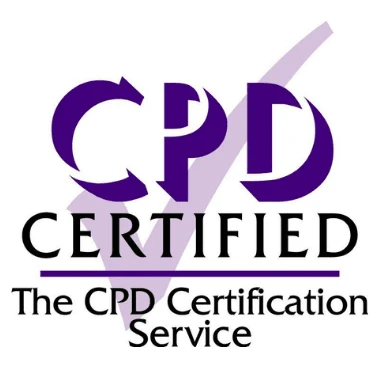
This programme is certified by the CPD Certification Service. It may be applicable to individuals who are members of, or are associated with, UK-based professional bodies.
Programme content
Explore the key themes involved in creating, leading and motivating high-performance teams – both face-to-face and remotely – within the context of achieving your organisational objectives.
Module 1: The leader as coach
- Learn to create a coaching culture and optimise individual performance.
- Explore coaching as a leadership style, the coaching continuum and coaching interventions.
- Focus on team coaching skills.
- Discover the optimal blend of support and challenge to develop your team.
- Understand how to use coaching tools and techniques in team meetings (both face-to-face and virtual).
Module 2: Creating high performance teams
- Explore frameworks and diagnostic tools for managing high performance teams.
- Identify the critical components to successfully structure and lead a high-performance team, including preparation, planning and control.
- Formulate the logic to take challenging decisions at critical junctures.
Module 3: Leading high-performance teams
- Broaden your lens to explore the mindsets, behaviours, and interactions of an effective team.
- Understand the key elements that help teams perform at a higher level.
- Explore case studies from the worlds of high-performance sport, business and diplomacy.
- Learn why connecting with others is critical – default to collaboration, rather than competition.
Module 4: Managing team processes effectively
- Clarify the roles and responsibilities of team members to ensure high performance.
- Examine the most effective ways to manage remote teams effectively, maintaining communication and culture.
- Learn to leverage the diversity within your team.
- Develop strategies to maximise individual contribution, ensuring optimal impact.
How you learn
Two delivery styles so you can choose whichever format best suits your needs.
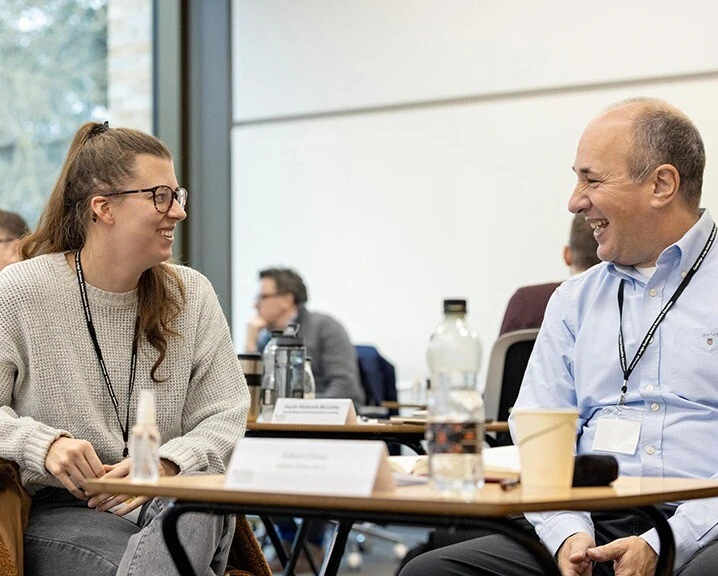
Face-to-face
Immerse yourself in an inspirational learning environment in the historic and beautiful city of Cambridge. In an intense classroom-based experience, you will engage with faculty and peers in person. Join ‘Cambridge Union’-style debates, hear from guest speakers and faculty, and enjoy group exercises, role-play and informal conversations both in and outside class.
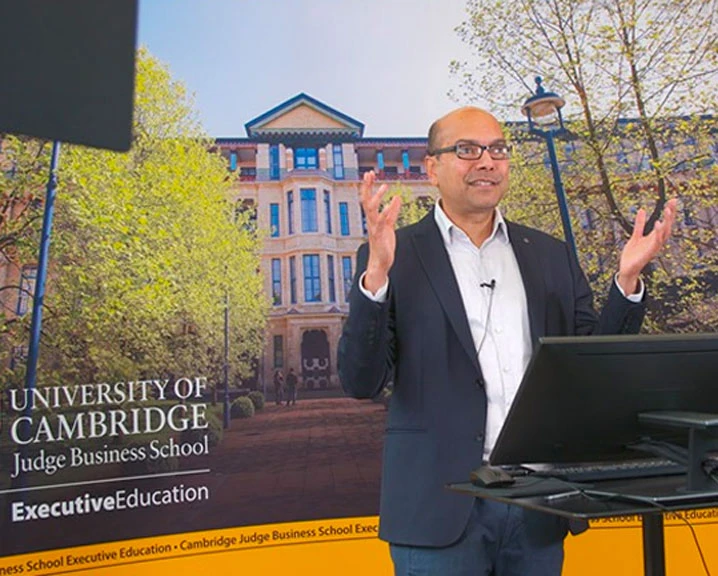
Live Online
Experience the best of Cambridge face-to-face learning right inside your home or office. Using current technologies, our seamless Live Online delivery offers you richly immersive interaction with faculty and peers. Engage in virtual debates, hear from guest speakers and faculty, and participate in breakout groups, simulations and role-play.
Who attends
Team leaders and managers who want to:
- develop powerful teams, maximise performance and optimise organisational effectiveness
- build their motivation and influencing skills within their peer group
- work with other teams to develop social networks
- recalibrate organisational culture towards high-performance working
- enhance their ability to motivate remote teams.
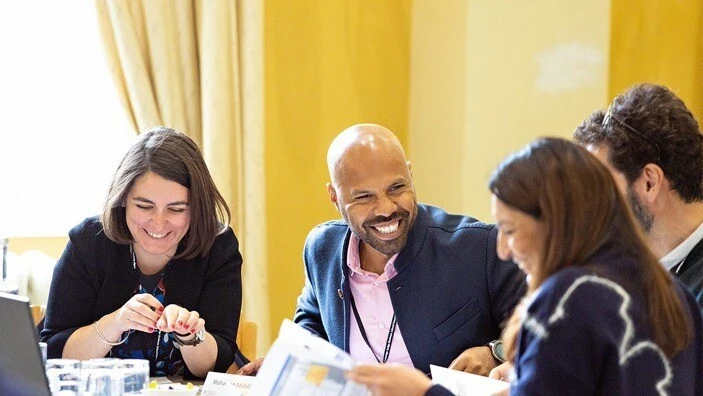
I thought the course was excellent! The speakers were all experts in their field with their own unique perspectives and insights to share both from an academic point-of-view and a practical one. Throughout the 4 half-day sessions the faculty brought the topic of high performance teams to life with interesting real-life scenarios in business, sports and other team-based scenarios to illustrate the academic learnings and to challenge the way we think about success in teams. The format was very well-adapted to an online setting, utilising breakout rooms for peer-to-peer activities, interactive digital features to encourage student participation, and plenty of opportunities for discussion and ideas-sharing. I found the content in the curriculum very interesting and came away feeling inspired and motivated to put the learnings into practice.
Faculty and speakers
Learn from our world-class faculty who bring fresh insights from their leading-edge research into all of our Executive Education programmes. The Academic Programme Director (APD) for the Creating High Performance Teams programme is Dr Philip Stiles.
Co-Director of the Centre for International Human Resource Management (CIHRM)
PhD (University of London)
PhD (Case Western University)
PhD (Aston University)
Why Cambridge Judge Business School?
Related programmes
Creating High Performance Teams belongs to our Managing People-topic executive education programmes. Here is a selection of related programmes:
Transformational Leadership
Leading through rapid change is a huge and complex challenge. Move beyond the ordinary, developing a flexible leadership style that strikes the right balance between inspirational leadership and results-oriented management.
People and Organisational Effectiveness
How well is your organisation really performing? Learn to build motivation, increase performance and stay connected with your people, even in turbulent times.
People Analytics: Transforming HR Strategy with Data Science
Align your HR decision-making with corporate objectives by leveraging the data that already exists within your organisation.
Speak to a programme advisor
If you have any questions or would like to discuss how this programme could benefit you or your organisation, please get in touch with the programme advisor.
